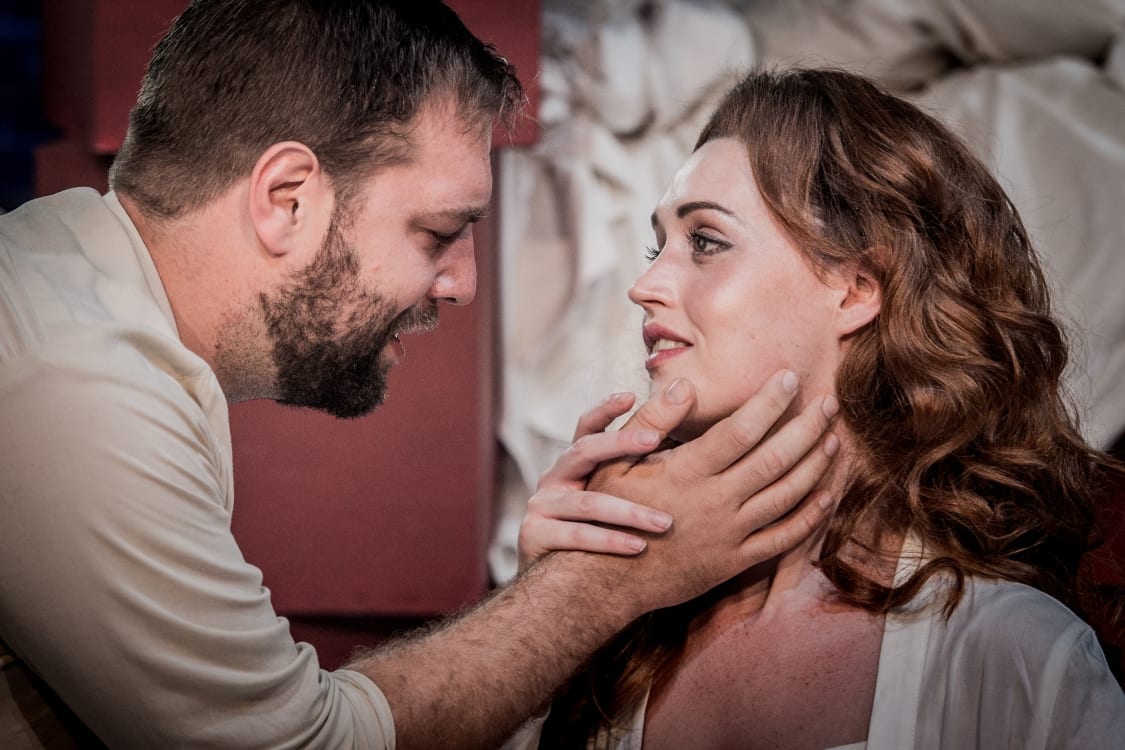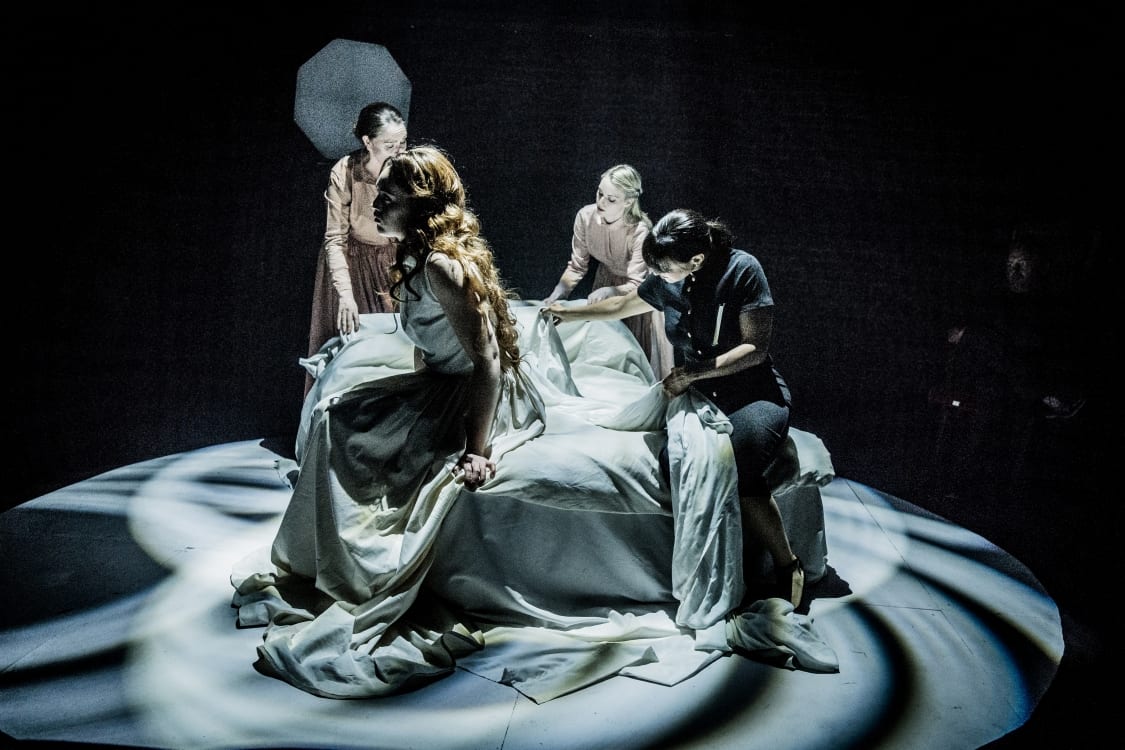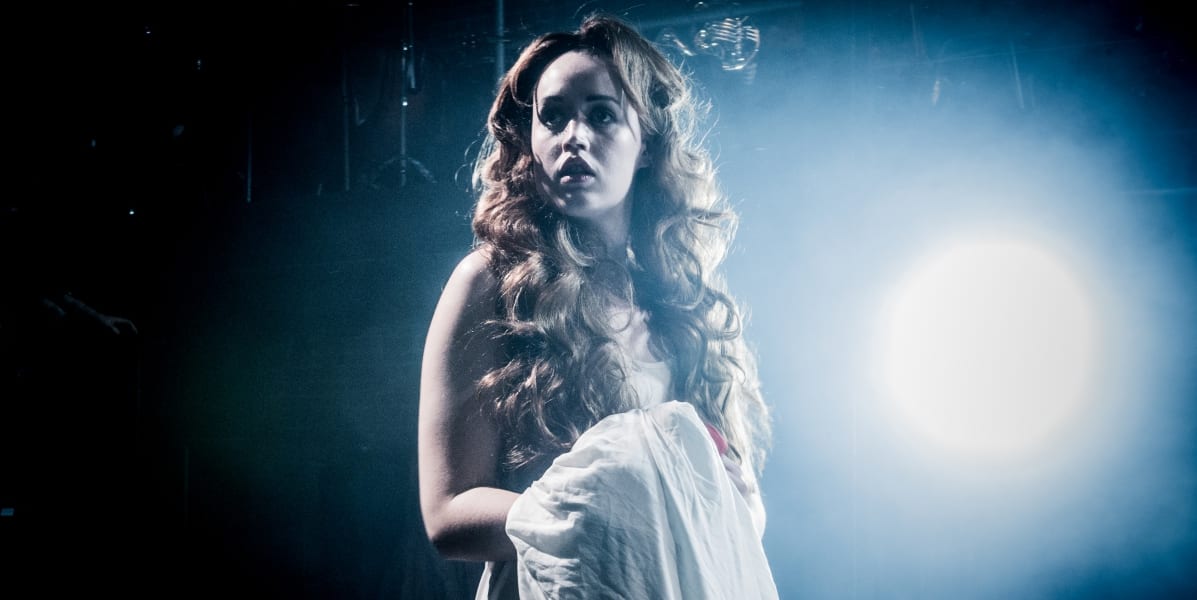The Grimeborn opera season at the Arcola Theatre in Dalston begins with The Rape of Lucretia by Benjamin Britten and it is a triumph. It is a perfect example of what Grimeborn does best and it is difficult to imagine a more powerful production of this gripping chamber opera written by Britten in 1946 and first performed that year at Glyndebourne. With an orchestra of twelve players and a cast of eight singers in the tiny – by opera standards – Arcola auditorium, the power of both the music and story is almost overwhelming. And all credit to Grimeborn for bringing together inventive director Julia Burbach and accomplished conductor Peter Selwyn, who have between them created a small miracle to open the festival.
Prince Tarquin is from the royal family of a debauched and decadent Rome. He develops a jealous hatred for the virtuous Collatinus and a lust for his faithful wife Lucretia. Tarquin visits her while Collatinus is absent and rapes her at knifepoint. Lucretia cannot bear to live with the memory of his brutality and kills herself. Collatinus vows revenge.
Burbach, Selwyn and their team tell this story with the utmost clarity and conviction. Britten has two singers described as chorus but, in this production, they transcend that description. They explain the background, they illuminate the feelings of the protagonists, and they act as appalled onlookers. From the first words of the opera – sung with musical precision and total clarity of text by the splendid tenor Rob Murray – the audience is gripped and drawn into the world of the opera. Murray, and the excellent Natasha Jouhi who sings the female chorus role, are as important to the story, and to the success of the performance, as the singers who portray Tarquin and Lucretia. Which is not to downplay the extraordinary performances of Benjamin Lewis and Bethan Langford. Lewis is the epitome of brooding malice. His rich baritone voice conveys all the nuances in Britten’s stunning score. “The pity is that sin has so much grace” is just one of the many beautiful lines of Duncan’s exemplary libretto and Lewis brings that line to life. And as Lucretia, the role Britten wrote for the contralto Kathleen Ferrier, Langford is simply outstanding. She dominates the stage whenever she is present and her mezzo voice seems made for the deeper passages of a score that make real demands of a young singer. A performance of real quality.
Burbach, working with the grain of the Grimeborn ethos, uses the simplest of sets to enhance the power of the story. Six boxes and some white bedding is enough to provide a setting for the action – and I must make a special mention for the work of the lighting designer Rob Price who uses his few options to powerful effect – as the story is frozen while the chorus reflect or as wicked deeds are cloaked in darkness. The Orpheus Sinfonia – crammed into an expanded gallery in the Arcola Studio – produce, under Selwyn’s exemplary conducting, an entirely engrossing account of Britten’s score.

I cannot recommend this production highly enough. It is not easy listening and the story is bleak but it brilliantly accomplishes what opera can do best – combine sound, vision, and story-telling into a compelling artistic whole.

